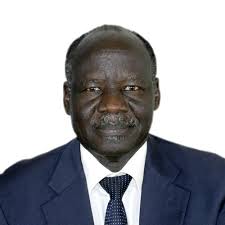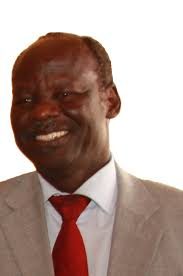The Khartoum peace negotiation is a flawed process

Leonzio A. Onek*
The South Sudanese Opposition Alliance (SSOA), is a conglomeration of various ”armed” and unarmed opposition groups railing against the dictatorial regime of Salva Kiir in Juba. The alliance was formed towards the end of 2017, after continuous appeals from the suffering people of South Sudan for the opposition to come together to streamline their effort in opposing the regime. Members of the alliance are best known by their acronyms, which are: FDP, Nas, NDM, PDM, SPLM-FDs, SSNMC, SSPM, SSUM, and UDRA. The motive and the objectives of the members are equally varied. Majority of the member parties are led by senior former members of the Kiir regime, some of whom were dismissed, or resigned from, or rebelled against the government. The remaining minority are being led by idealistic intellectuals. While the former groups can be described as conservatives (with a small c), who miss their former jobs and privileges and thus are amenable for changes which can return them to their positions, the idealistic group are more militant in demanding radical changes to the structure of the states and governance systems. These stark differences have been a source of constant tension between the two wings of the alliance. This tension is bound to come to ahead sooner or later, and may unfortunately lead to the breakup of the alliance.
The alliance is currently headed by a former Sudanese banker and Minister of Finance in the Kiir regime, Mr Gabriel Changson. Behind Mr Changson, is another South Sudanese veteran politician, liberation fighter, former Sudanese foreign minister and agriculture minister, in the Kiir’s regime; Dr Lam Akol. Dr Lam resigned his post to form his NDM outfit. Generally known as a political fox and a clever political operator, Dr Lam Akol is the eminence grise of the Changson’s chairmanship of the alliance. He is the power behind the throne and nothing gets done without his say-so. He reminds one of Chancellor Otto von Bismarck of Prussia of the 19th Century Europe: Bismarck made things so complicated for his Emperor that he became indispensible in the affairs of the Court. It is important to stress that both Changson and Lam (he is usually referred to with his first name), have their exile homes in Khartoum and most probably are travelling on Sudanese diplomatic passports (Lam does not require a visa to enter countries like Ethiopia). There is, therefore, a very close relationship between the duo and the government of Sudan.
The opportunity for the possible rupture in the alliance, referred to earlier, came in the last week of June, 2018, when the IGAD-led process of revitalization the August 2015 agreement (ARCSS), commonly known as HLRF, was transferred to Khartoum under the auspices of President Omer Beshir. Right at the beginning, the Sudanese mediators adopted a less subtle method of pressuring or “bribing” the negotiators. These are briefly described below.
It started with the manner of invitation to Khartoum. The Sudanese mediators have adopted several tactics which are radically different from the Ismail Wais-led process; Ambassador Dr Ismail Wais is the IGAD’s Special Envoy to South Sudan and leads the revitalization of ARCSS process. First, the Sudanese or someone close to them identified certain members of the opposition as key to the success of their mediation. It started in Addis Ababa during the meeting of the IGAD heads of states on 21 June 2018.
Five opposition leaders were invited: Changson (FDP), Lam (NDM), Cirillo (NAS), Mayen (OPP) and Deng Alor (FD). The first three are founding members of SSOA. The meeting between Kiir and Riek was scheduled on 25 June 2018. IGAD’s invitation to the opposition, including the five, was for 28 June. However, a special ticket and visa arrangement were made for the five parties’ members to travel to Khartoum before or on 25 June. This came to light when in Khartoum, a member of the Changson’s party complained, in a SSOA’s meeting, how they were hurried in Nairobi to get visas, tickets and to be extracted from a Nairobi slum at 2 am to travel to Khartoum. One senior member each from NAS and FDP ended up having two tickets: one from a mysterious source and the other from IGAD. Those who travelled to Khartoum using this third-party arrangement were denied the usual out-of-pocket allowances given by IGAD secretariats to invitees who travel on IGAD’s ticket only. The clandestine travel arrangement was a very unusual act indeed. It gave the first indication that the Khartoum process was not above-board.
While in Khartoum, the Sudanese took another unusual step of segregating the treatments of delegates. In the Ismail-Wais conducted process, delegates were treated equally, with respect and dignity. But in Khartoum, the Sudanese assigned to the special invitees (leaders only) diplomatic vehicles that ferry them around Khartoum ad lib. Other delegates of eminent persons were also segregated: Madam Nyandeng (Dr John Garang’s widow), Francis Deng, and Professor Moses Machar were also issued with similar vehicles. However, the Anglican Bishop and the Moslem Sheik who were usually categorized by the IGAD process under the eminent persons were denied the special treatment; they were house in students’ hostel, had no cars and had to beg lifts from the favored eminent persons.
Most unusually, the entire Civil Society contingent was housed, by the Sudanese, in a hotel some 10 miles from the conference site and was denied means of transport to the site for more than four days. Later, when its members were transferred to the site, they were accommodated in the students’ hostel. However, all the preferred leaders of the parties listed earlier were accommodated in either VIP suites in commercial hotels or were accommodated in the VIP wing of the High Academy for Security and Strategic Studies campus. The rest of other delegates were accommodated in students’ hostel at the academy.
In Addis Ababa, each constituent party of SSOA was allowed to send a representative to special committees negotiating either the governance or the security arrangements issues. However, in Khartoum the Sudanese mediators chose only those they want to negotiate with from among the delegates and leaders. For example, the security arrangements negotiation was carried out only by Cirillo and one Hussein who represented the Costello Garang’s movement from among the SSOA parties. Hussein is a scion of a famous Dinka family in Khartoum and is very well known to the security people in Khartoum. Expectedly, he was also accorded a similar treatment given to the heads of the five opposition parties: a VIP suite and a car. These selective and discriminative choices and treatment of the interlocutors undermined and continue to do so one of the principles of the revitalization process: inclusivity.
The leadership of SSOA is dominated by Changson and Lam as hinted earlier. The two draw up documents and have exclusive consultations with various diplomats and mediators both in Addis Ababa and Khartoum. Some of the matters discussed and outcomes are not routinely reported back to the plenary meetings of the alliance. In one bizarre example, Changson told members that SSOA was asked to provide only one member to accompany President Omer Beshir to Entebbe in a meeting with President Museveni of Uganda. However, members were to learn later that Changson was actually accompanied by Lam. (Some members were of the opinion that Changson was to go with Gen. Thomas Cirillo. This would have provided a regional balance as both Changson and Lam are from the Upper Nile region of South Sudan. This was ignored by Changson).
This non-transparent leadership, on the side of Changson, has engendered a lot of suspicions among the alliance membership. The situation is not helped by the suspicious travel arrangements to Khartoum which left out leaders and members of other constituent parties. It is for this reason that Changson came under severe criticism and censure when he, without consultations, signed the Khartoum Declaration Agreement (KDA). When pressed for an explanation why he acted in the manner he did, he gave conflicting answers, that he “signed the KDA because he did not want to embarrass the Sudanese President, Omer Beshir”. Some of his aides were peddling the information that Changson was forced to sign the agreement by Sudanese security operatives.
This brings to the fore the question of independence of the SSOA’s Chairman. Does his closeness to the Sudanese government have a negative impact on his judgments? His mandate is to negotiate and sign a just peace for the people of South Sudan; it does not certainly include the fear of “embarrassing the President of Sudan”.
Furthermore, in accepting preferential treatment from the Sudanese mediators did he know that he was jeopardizing his integrity and independence? What about his residency in Khartoum? Does this make him vulnerable to pressure to do the biddings of the Sudanese mediators? We think these are very important questions whose answers might help decide whether the alliance can go forward as one and united entity or as a disjointed and division-riven outfit. The next few weeks will be crucial as the Khartoum process fitfully grinds forward.
In the end, willy-nilly, the outcomes from the Khartoum process will be tainted by doubts whether the role of the opposition alliance was adversely influenced by the fear of the captive asylum-seeking duo, Changson and Lam, of their asylum-giving host, the Republic of the Sudan. Only time will tell.
*Professor Leonzio Angole Onek is a PDM delegate to HLRF. The opinions expressed here are his and not those of the PDM.
Editor’s Note: The views expressed in the “Opinion Page” are solely the opinions of the writers. The veracity of any claims made are the responsibility of the author’s and are not necessarily endorsed by The Malakal Post. The Malakal Post, reserves the right to edit articles before publication. If you would like to submit an opinion article or analysis, please email your article at: info@malakalpost.com















